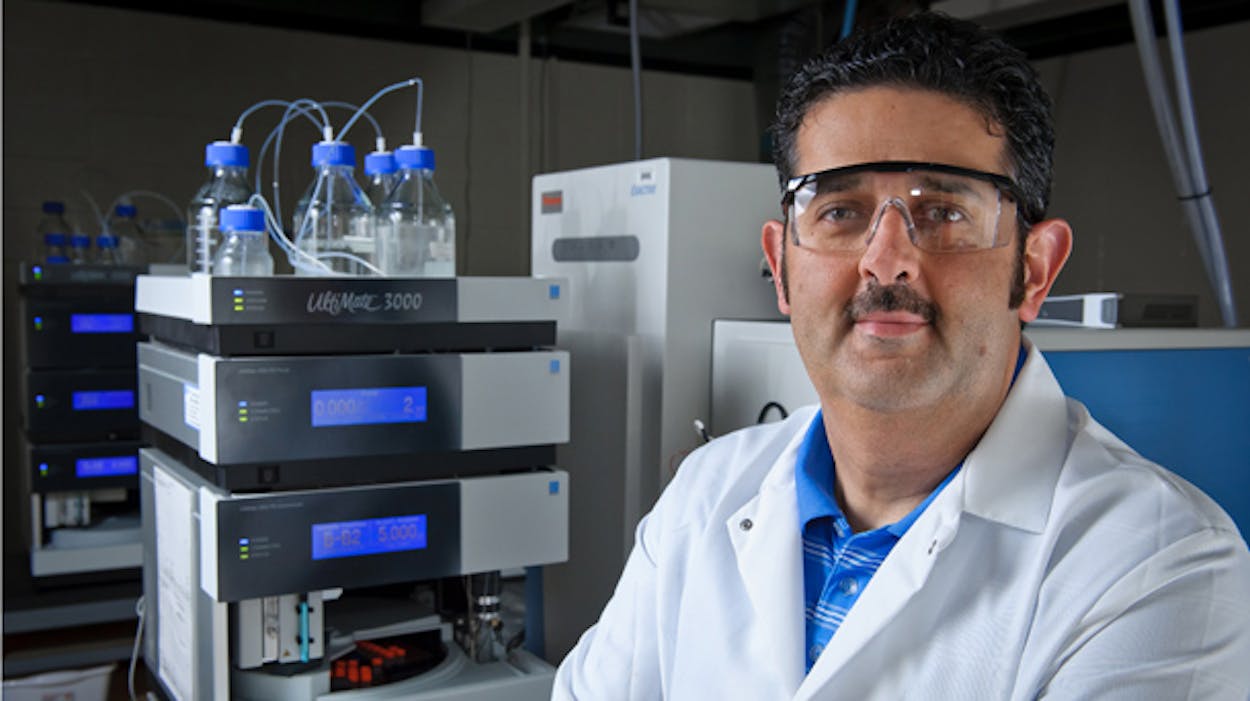The groundbreaking research being conducted by a Texas Tech University professor could save the lives of many women.
Yehia Mechref, a bioanalytical chemist, received a $1.2 million grant from The Cancer Prevention and Research Institute of Texas (CPRIT) to study how breast cancer may metastasize to the brain.
His research also may discover a key to early detection of breast cancer cells that may have the ability to invade the brain.
Mechref, an associate professor in the Department of Chemistry and Biochemistry, is the first at Texas Tech to receive a grant under the highly competitive CPRIT’s Individual Investigator Program. Only about 10 percent of the projects that apply for this grant are funded.
CPRIT was created in 2007 after Texas voters approved it. The organization will award some $3 billion in cancer initiatives over the next decade. Its goal is to expedite innovation and commercialization in the area of cancer research and to enhance access to evidence-based prevention programs and services throughout the state.
With the three-year grant, his project will study how certain sugar signatures on breast cancer cells might gain them entrance past the blood-brain barrier and allow them to metastasize in the brain.
The blood-brain barrier is semi-permeable and allows some materials to cross into brain tissue but prevents others. Mechref said his preliminary research has shown that perhaps these cancer cells contain a sugar compound that tricks pathways in the barrier into letting the cancer cells pass through into the brain.
“We believe sugar signatures on some breast cancer cells give them the ability to cross past the blood-brain barrier,” Mechref said. “It’s like they have a matching key to another compound that allows the cancer cells to come through. This is our hypothesis. Our preliminary data suggests there is truth to this fact.”
In the first part of the research, Mechref will look to pinpoint the exact compound on the cancer cell that acts like a matching key. In the second part, he will look at breast cancer biopsies provided by Dr. Zeina Nahleh, chief of hematology-oncology at Texas Tech University Health Sciences Center (TTUHSC) in El Paso and Dr. Patrick Reynolds, director of the Cancer Center at TTUHSC in Lubbock, to see if the sugar signature is present in patients who did develop brain cancer compared to those who did not.
“The goal is to see if these sugar signatures are related to brain cancer,” he said. “Breast cancer is being detected at earlier stages now, but we’re seeing a 15 to 30 percent increase in brain cancer originating from breast cancer each year. We are trying to see if we can find predictors that will help us determine which patients could end up developing brain cancer and which patients will not.”






